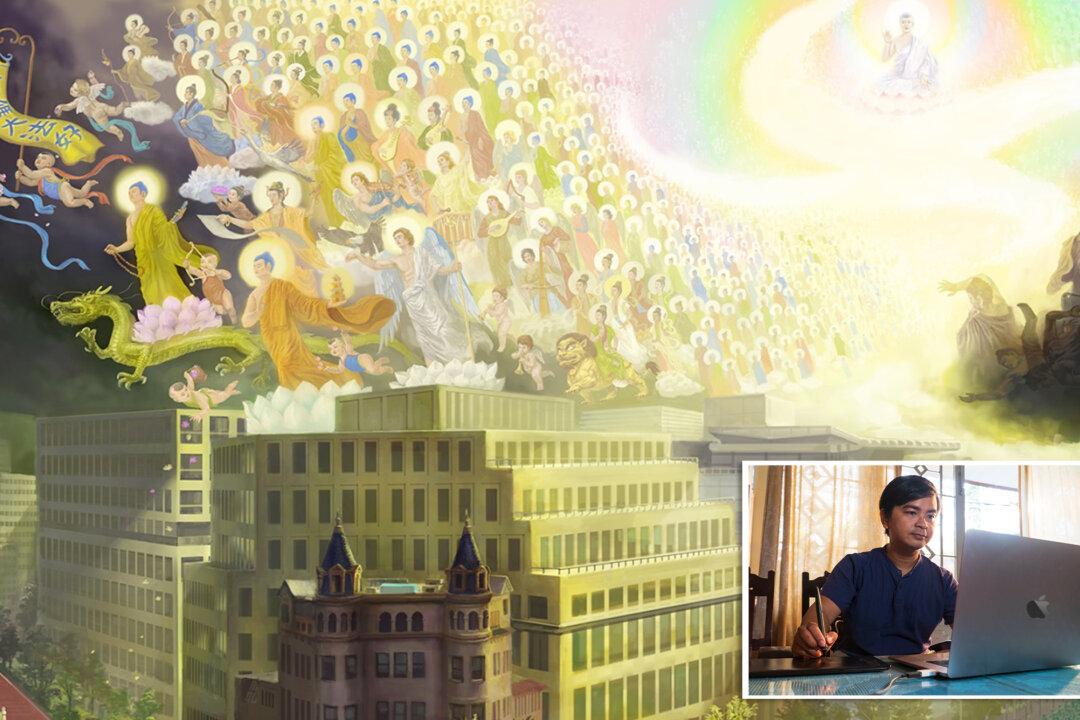Once an atheist, a young award-winning artist’s work now revolves around faith: painting the heavenly realms and validating the existence of the divine. His impressive themes contrasting virtue from vice naturally guide viewers toward kindness and forgiveness.
Meet Loc Minh Duong, a digital illustrator born and raised in Ho Chi Minh city, Vietnam.
Duong has been drawn to Renaissance artwork, especially paintings, since his school years. Following tradition and upholding truth are the core themes of his work. He believes that true artists are able to inspire in others a longing for pure goodness—and to achieve this, artists are required to be mindful of how their own thoughts impact their art.
“Traditional values are not only reflected in how an artwork appears at the surface but also in the process of creating the work,” he told The Epoch Times.
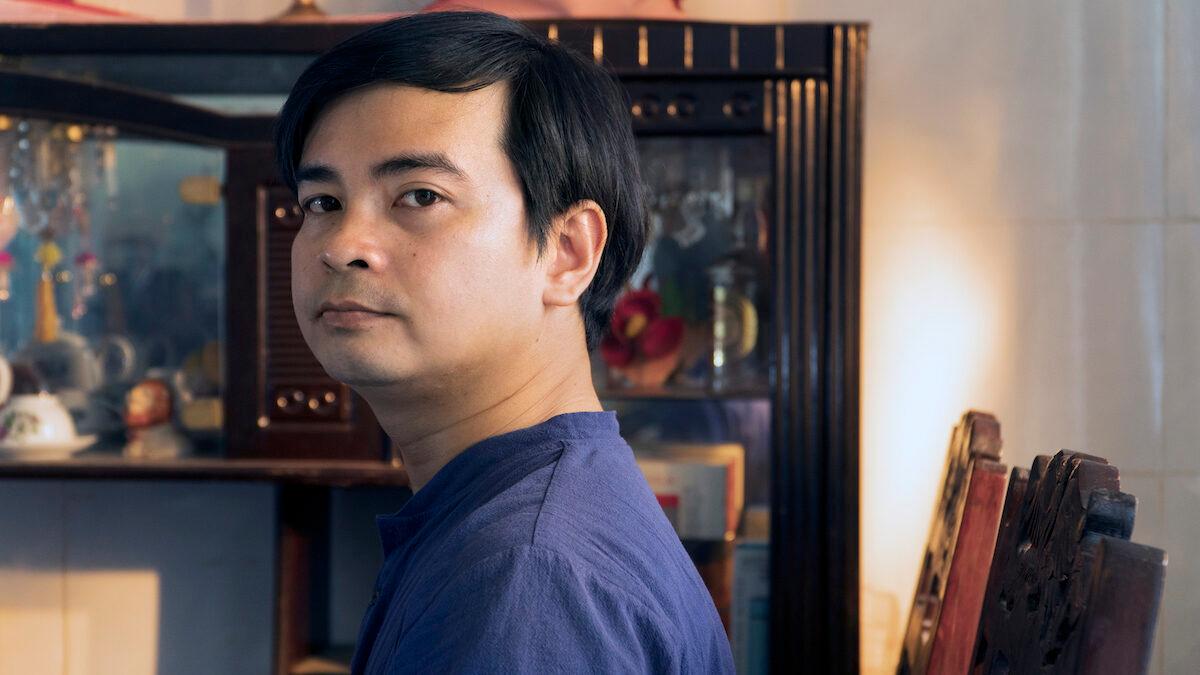
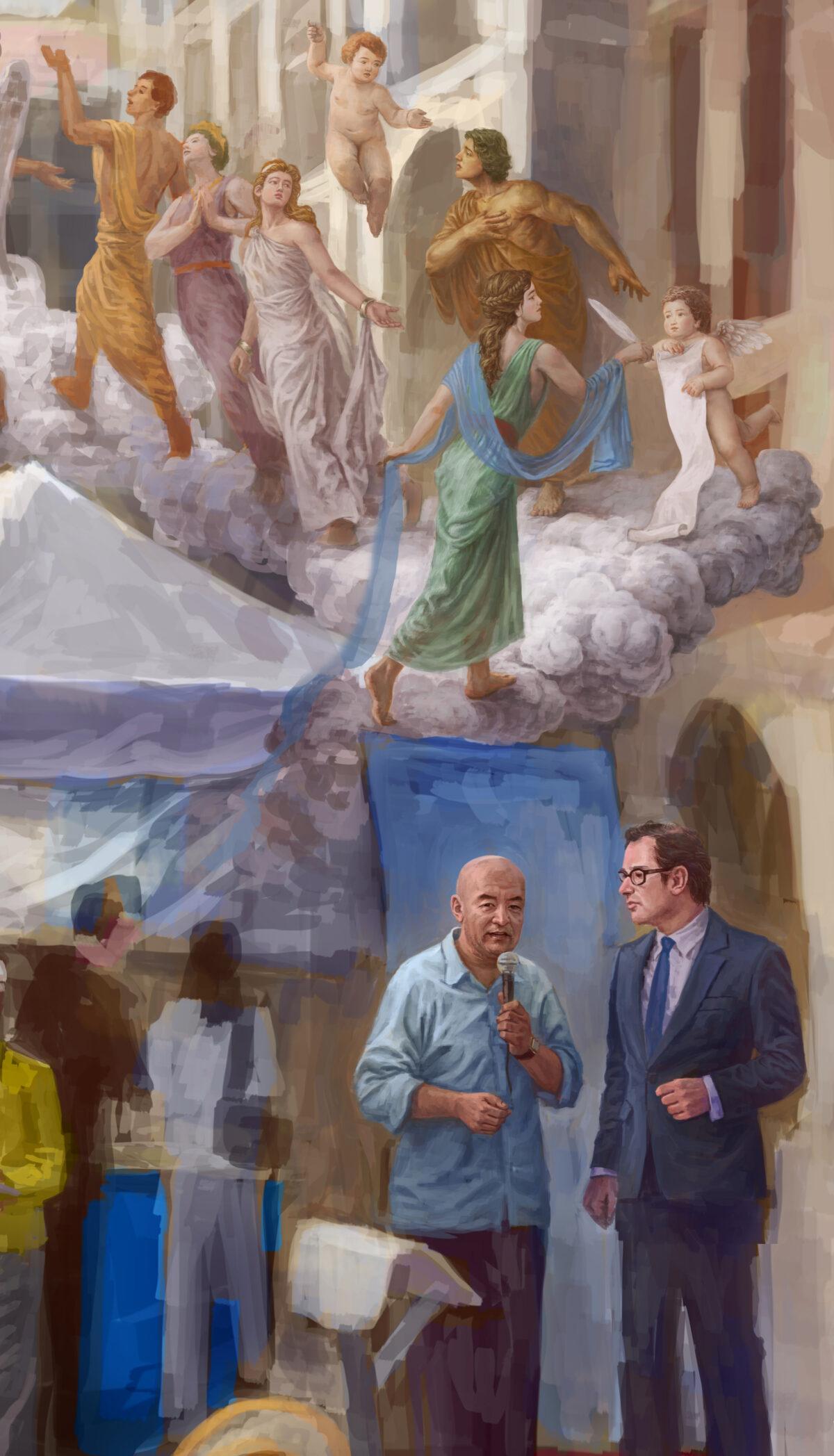
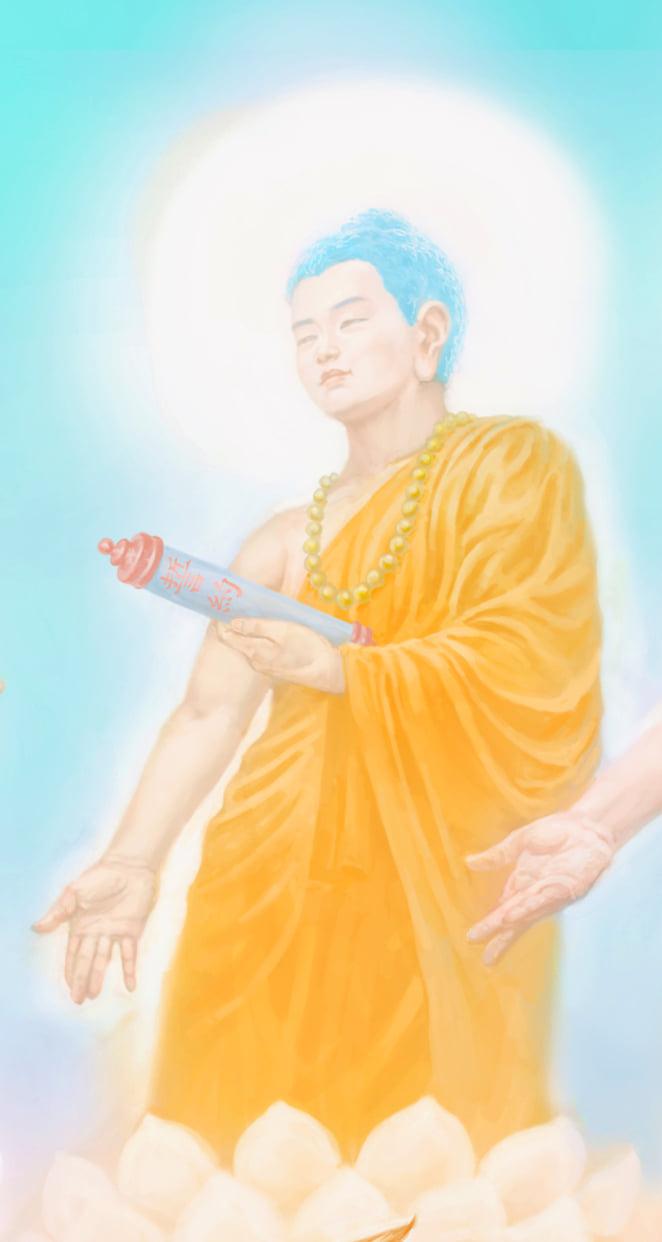
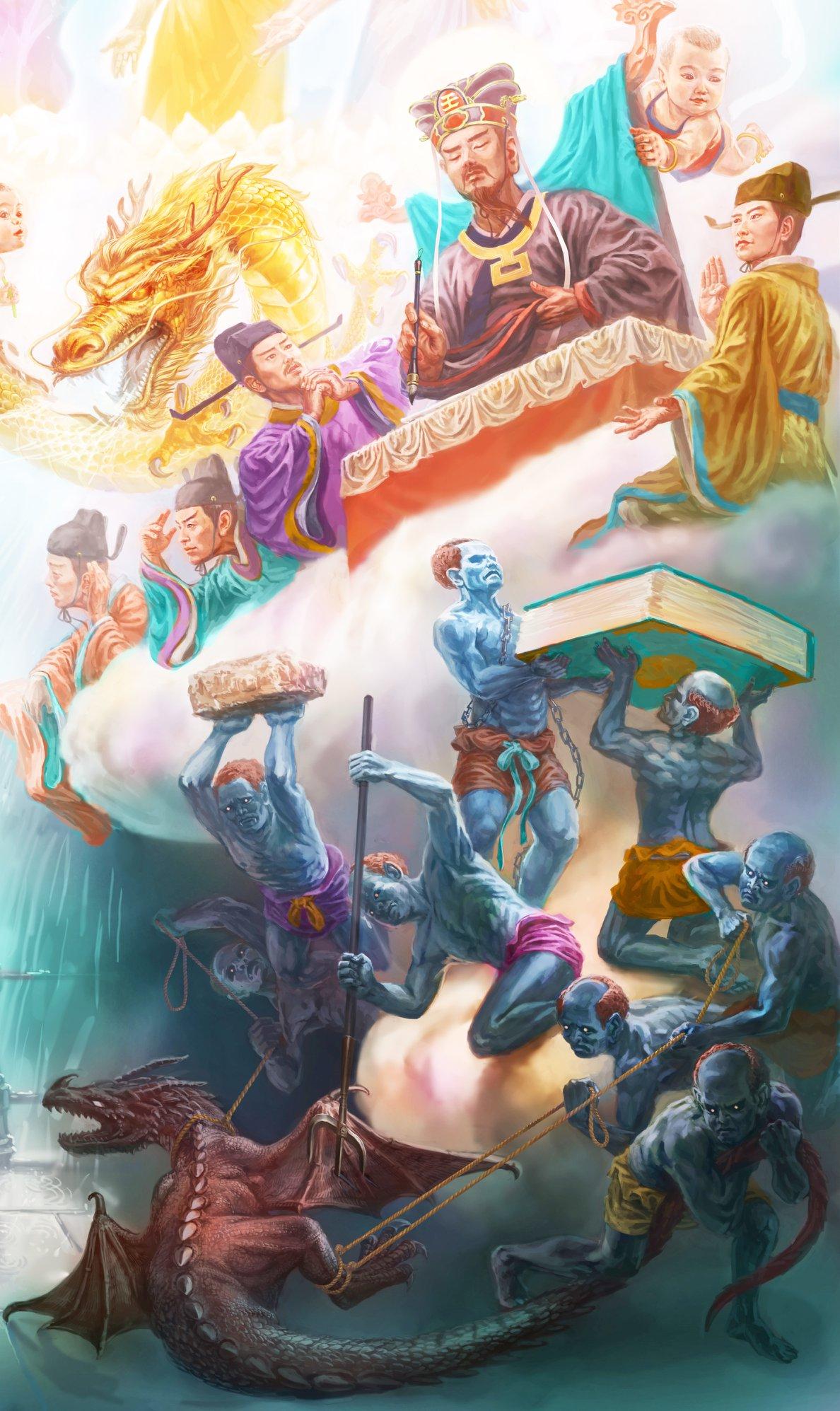
Duong added: “What do artists think about when they create their work? Do they think about the benefits they gain or think about higher meaningful things? Does the world in their work make viewers feel more peaceful? An artist should be someone who loves to cultivate morality because every thought they think in life can be reflected in the picture, and the viewer can feel their inner worlds.
Forging the Path
Duong’s interest in the art world grew in school when he first saw a painting of “The Litta Madonna” by the Renaissance artist Leonardo da Vinci. He was fascinated by the masterpiece.“In that painting there is something attractive beyond the beauty of reality—a divine reality,” he said. “Since then, I have always admired Renaissance paintings.”
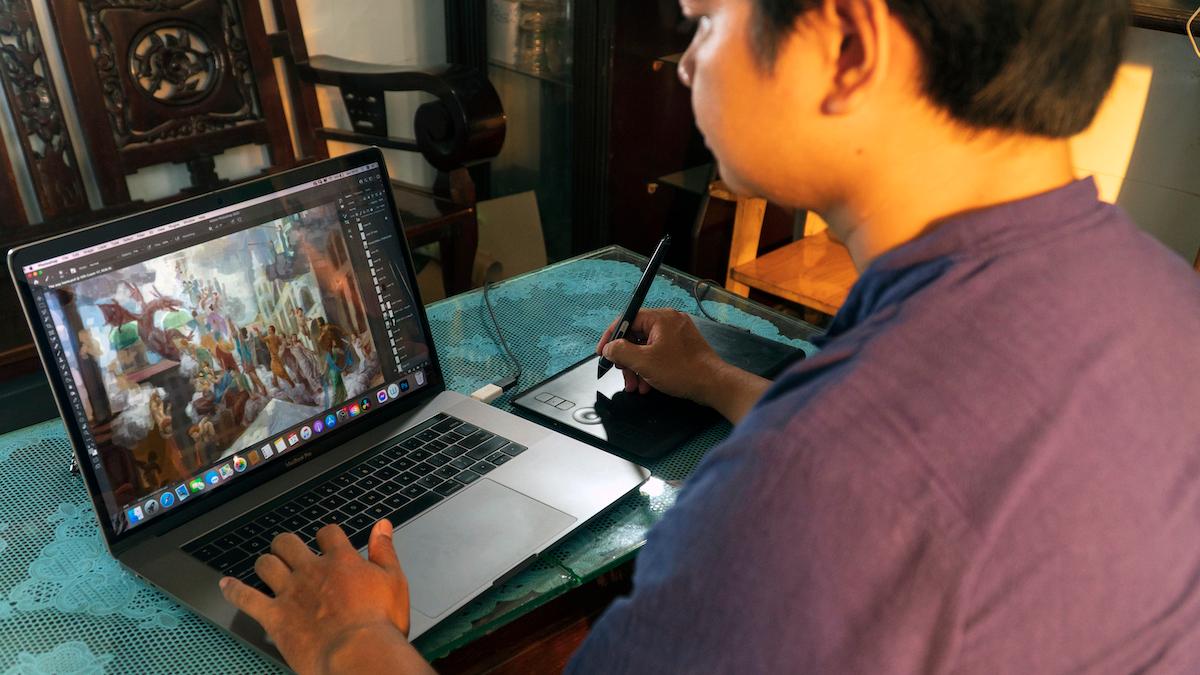
In college, Duong chose to study interior design and really enjoyed art classes. Outside the classes, he worked as an assistant to an artist who taught him many things about art. After graduating from university, Duong began his career in digital illustration. He currently works in the advertising field and mostly does digital paintings.
One of his most famous works is the painting titled “Unmoved” which received the “Humanity and Culture” award in the NTD 2019 Oil Painting Competition.
The painting shows a determined little girl sitting still in meditation enveloped in bright golden light. The imminent danger depicted in the form of hungry ferocious wolves has no sway over her. The girl symbolizes the untapped strength and all-harmonizing compassion that shine forth only if the heart is unmoved and the will is resolute as one faces life’s adversities.
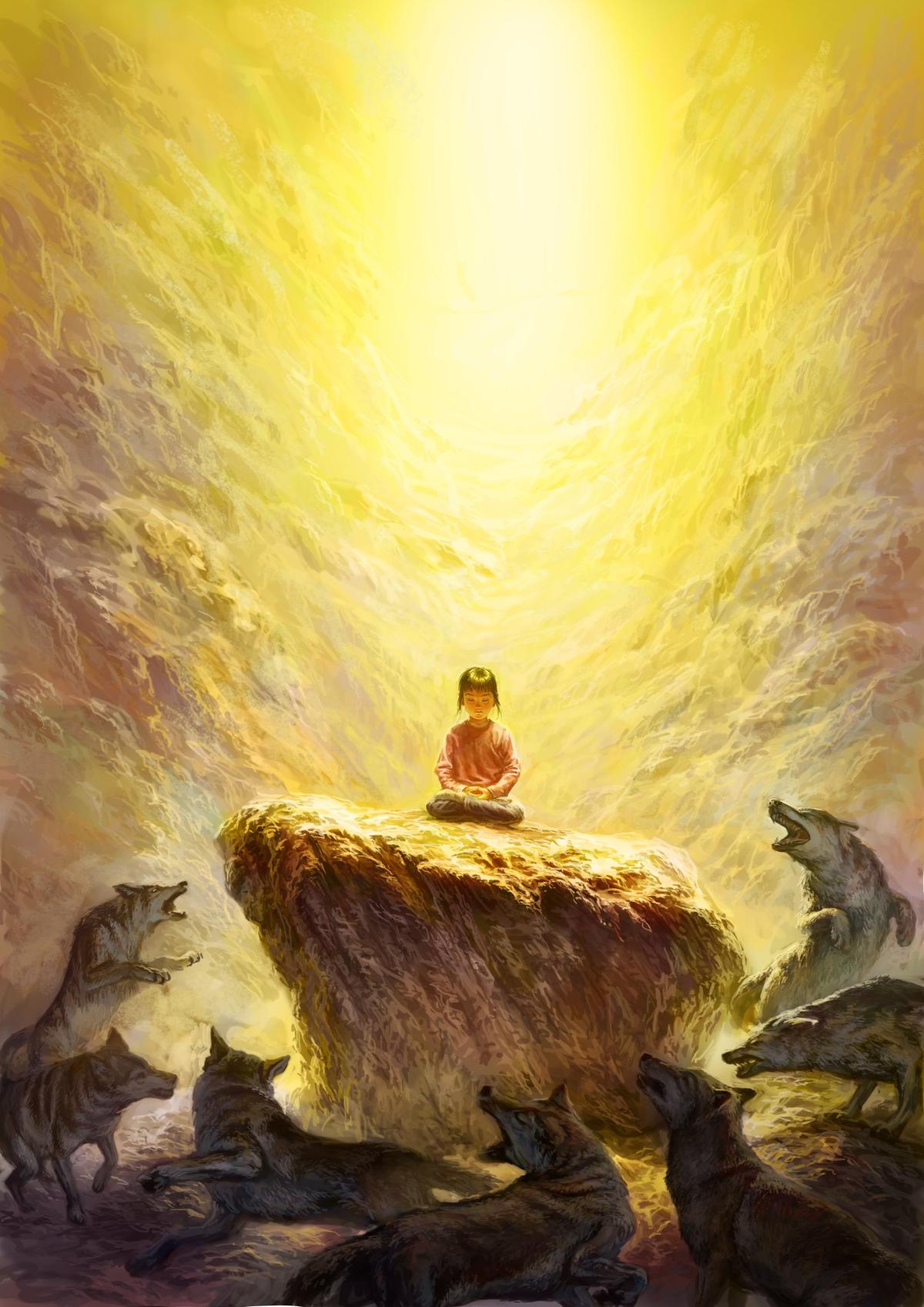
Duong said the painting has received positive feedback from viewers across different cultures, with the majority sharing that it gives them a “sense of peace.” Others said that they felt “good energy” emanating from the picture.
‘Gods and Buddhas Really Do Exist’
Once a confessed atheist, Duong says he used to be one of the countless who arrogantly believe that Buddha was nothing more than a “wise man who created a philosophy for a happy life.”One day, as he visited the library of a temple to pick up a movie for a friend, he experienced something that made him question the existence of God.
“When I was looking for the movie in the library, a stack of DVD discs suddenly fell on my head and the laughter of many people rang out, even though there weren’t too many people in the library,” he said. “At that time, a question popped up in my mind: ‘Is God real?’”
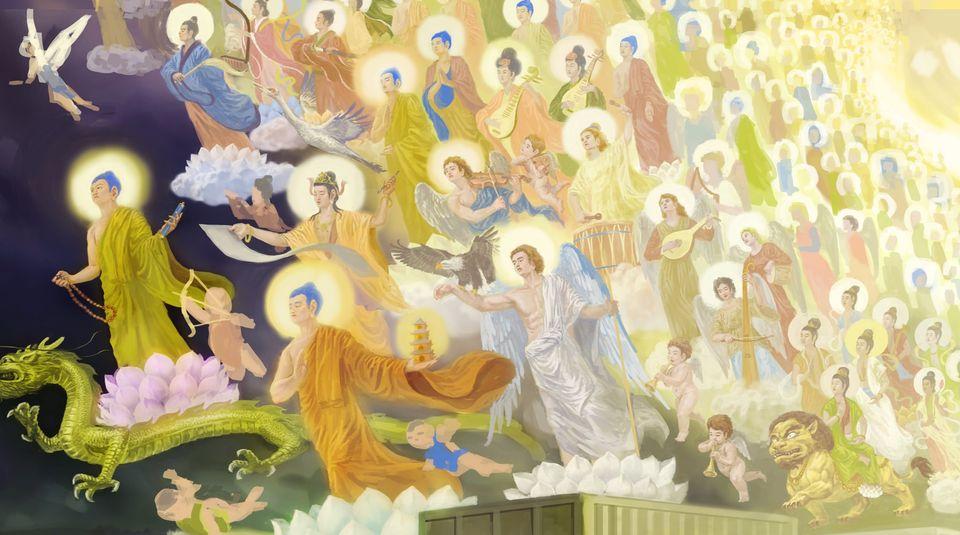
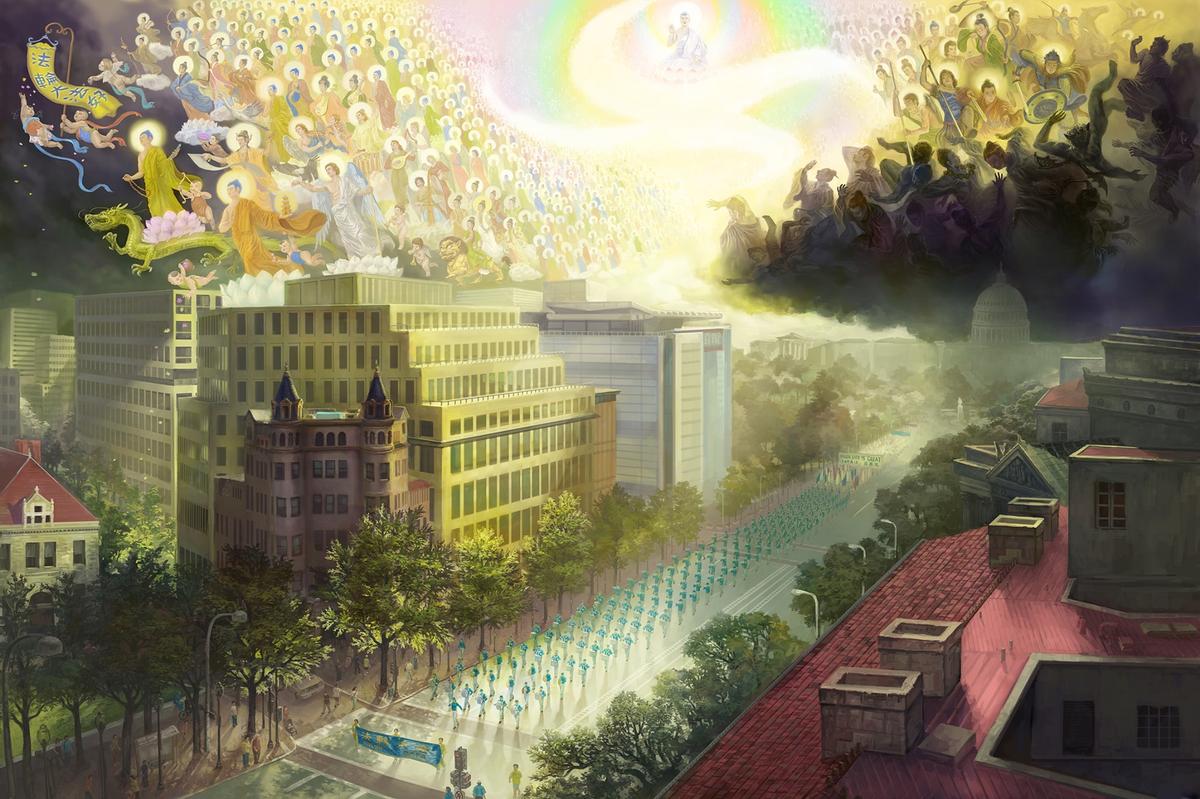
Recalling how the toxic concepts of atheism were washed from his mind, Duong said that some of his friends in Vietnam were once talking about the spiritual practice of Falun Gong (or Falun Dafa), an ancient meditation and self-improvement system rooted in the Buddhist tradition. Ironically, Falun Gong is flourishing in Vietnam—a communist country—while it has faced unprecedented persecution in nearby communist China since 1999.
Out of curiosity, Duong borrowed the book “Zhuan Falun,” the main text of the spiritual practice, from one of his friends to read.
“I found the things written in the book to be very scientific, explaining several spiritual phenomena in a very easy-to-understand way,” he said. “I realized that Gods and Buddhas really do exist, and they exist scientifically and are not created by human imagination.
“I now sincerely respect Gods and Buddhas. I respect them because I know they really exist and always protect people.”
Duong said the principles detailed in the book also answered many of his questions and enabled him to live a virtuous life.
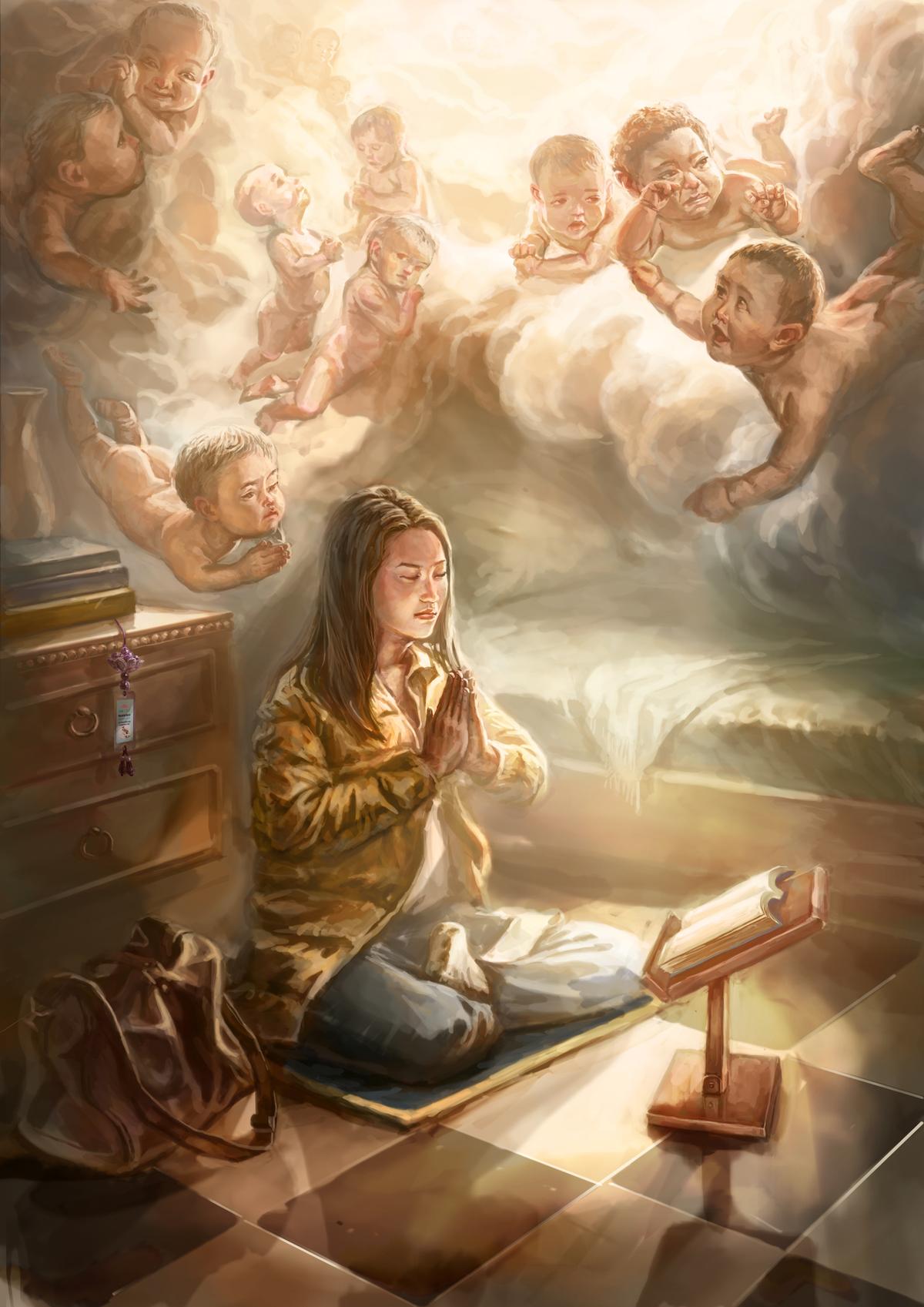
“I had always found human happiness to be limited, and I wonder if there is a kind of eternal happiness,” he said. “After reading Zhuan Falun, I understood that eternal happiness could only be achieved when one aligns with the nature of the universe: Truthfulness, Compassion, Tolerance.
“Falun Gong has given me the confidence that as long as I align my thoughts and actions with ‘Truthfulness, Compassion, Forbearance,’ whatever I am worthy of will come back to me, in different ways. When you see how life works, you will feel happy even in unfavorable circumstances.”
Talking about the ongoing persecution of the faith, Duong said that the persecution of Falun Gong has now extended beyond the borders of China, “becoming a test of conscience for people all over the world.”
“No matter what country, the color of skin, religion you are… it is hard to remain silent before such a crime,” he said.
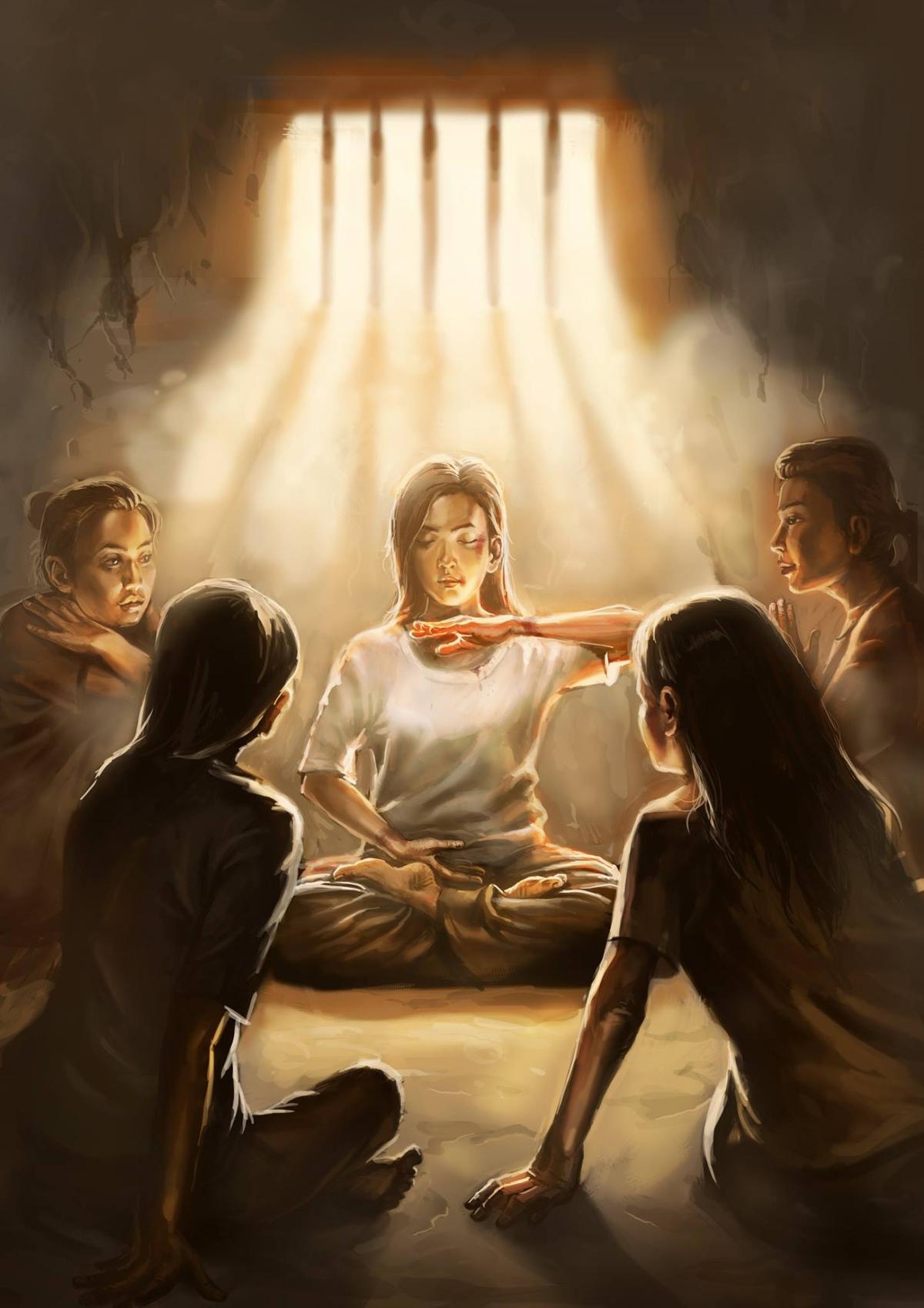
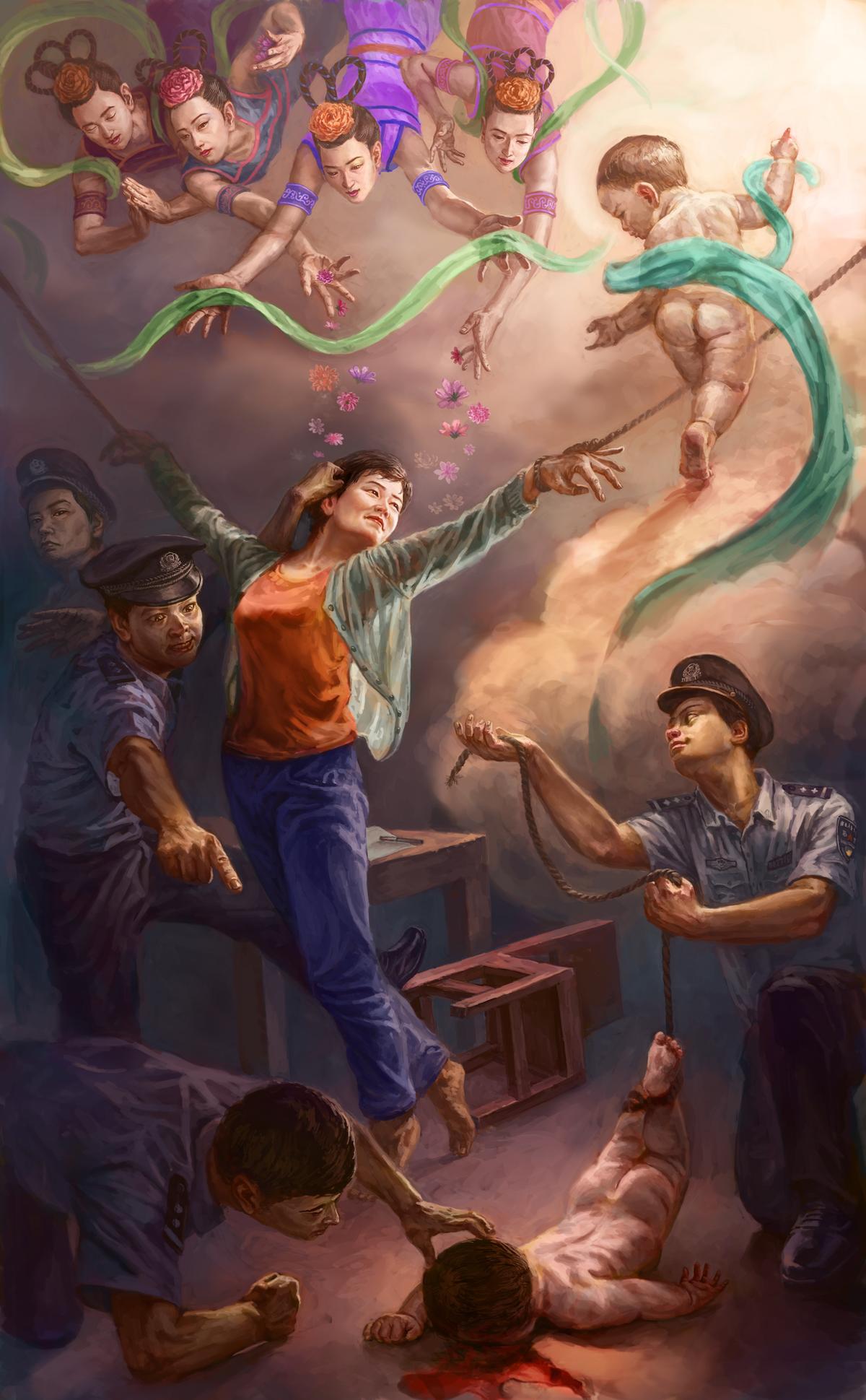
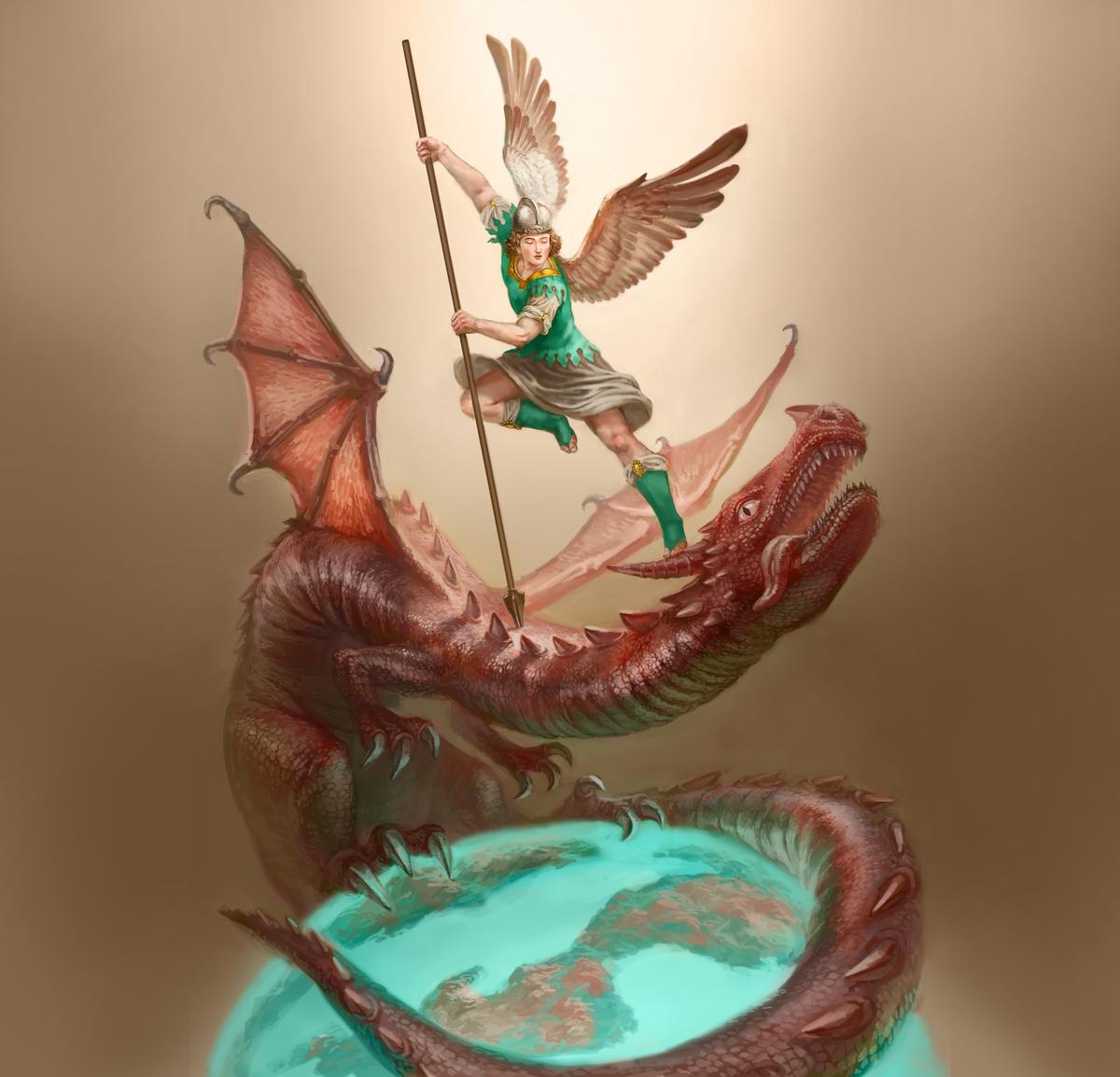
Inspiring Morality and Clarity
The wise young man believes holding onto traditions and morals in day-to-day life is the surefire secret to achieving success that is far more enduring and rewarding.Nurturing essential virtues like thinking of others’ needs first and cultivating a calm and compassionate heart has become the basis of everything Duong does. And he says when the mind is pure, inspiration flows forth effortlessly, like an eternal fountain.
“There are times when I feel I lack the inspiration to draw,” he said. “But I soon realize that I have allowed selfish thoughts to infiltrate the sacred creative process. Thoughts like, ‘I hope my paintings would be praised by others,’ or I’m just afraid that others would criticize my work.
“Joy gained from selfishness is very short-lived. So if you paint with such thoughts, you will soon feel uninspired.
“In modern life, I have found that there are many movies, classes, businesses, and celebrities that teach one a smart way of working for quick success. However, I’ve also seen that the people who are consistently successful are those who pursue certain traditional virtues like patience, honesty, and forgiveness.”
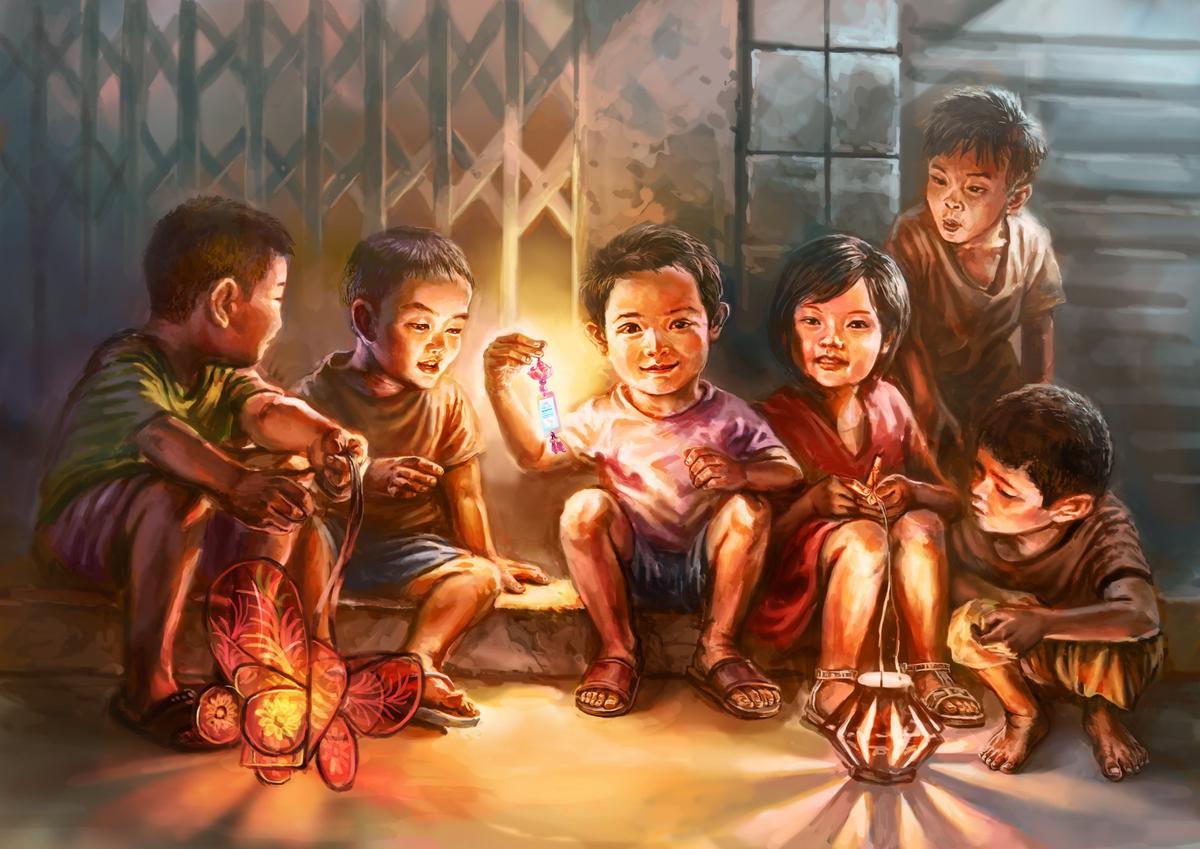
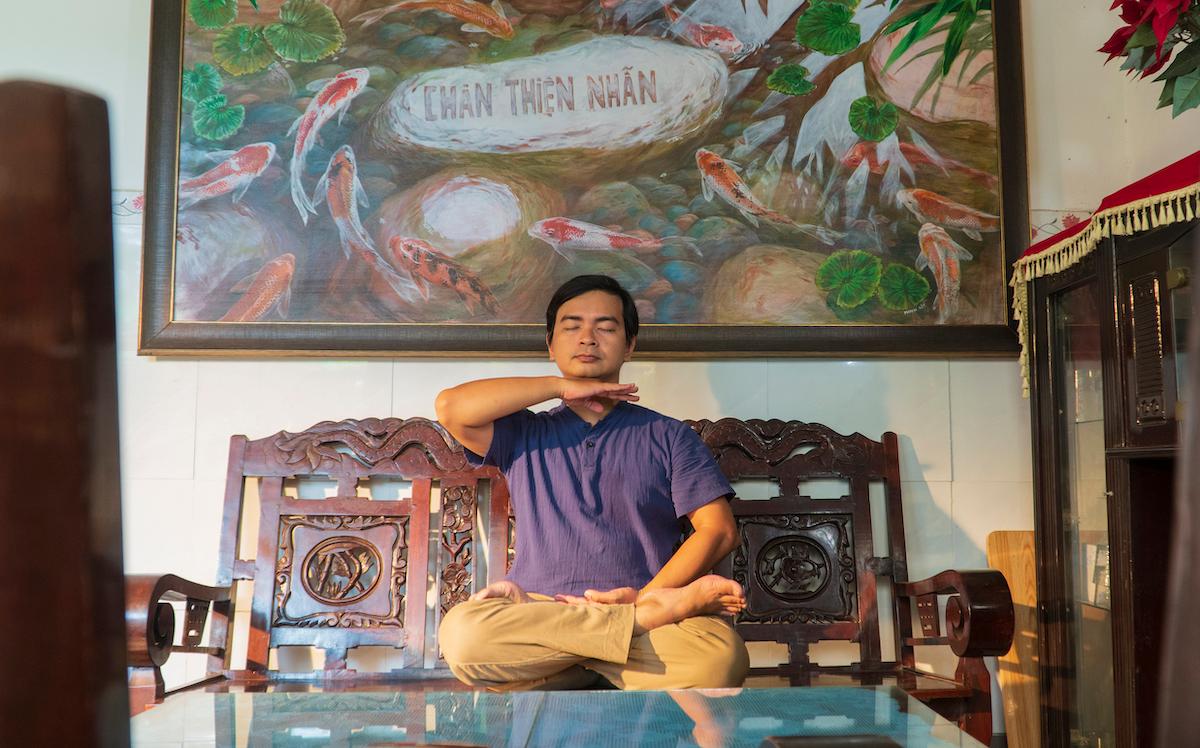
As an artist, Duong stresses there is profound significance in honoring morality in the creative world. “A painting should remind people of traditional moral values,” he said, adding that through such paintings people will then “recall their innate kindness and have faith in God.”
Duong has firsthand experience of God-led, inspiring ideas coming his way. He said that whenever he thinks of using paintings as a medium to depict righteous values or the existence of Gods, the ideas spark in his mind and are “waiting to be drawn” by him.
“I think that painting is like a door connecting the viewer to the other worlds. Of course, there is the divine world and there is also the evil world,” he said. “Evil things may also want to be drawn by me. So I have to stay awake and chase away lustful thoughts. If I paint to be rich or famous, I am most likely leading the viewer to worlds of destruction, and my art will soon come to a standstill.
“So before I decide to paint a picture, I usually experience the world in the painting with my imagination. If that world makes me feel moved, I will decide to share that world with everyone through the painting.”

